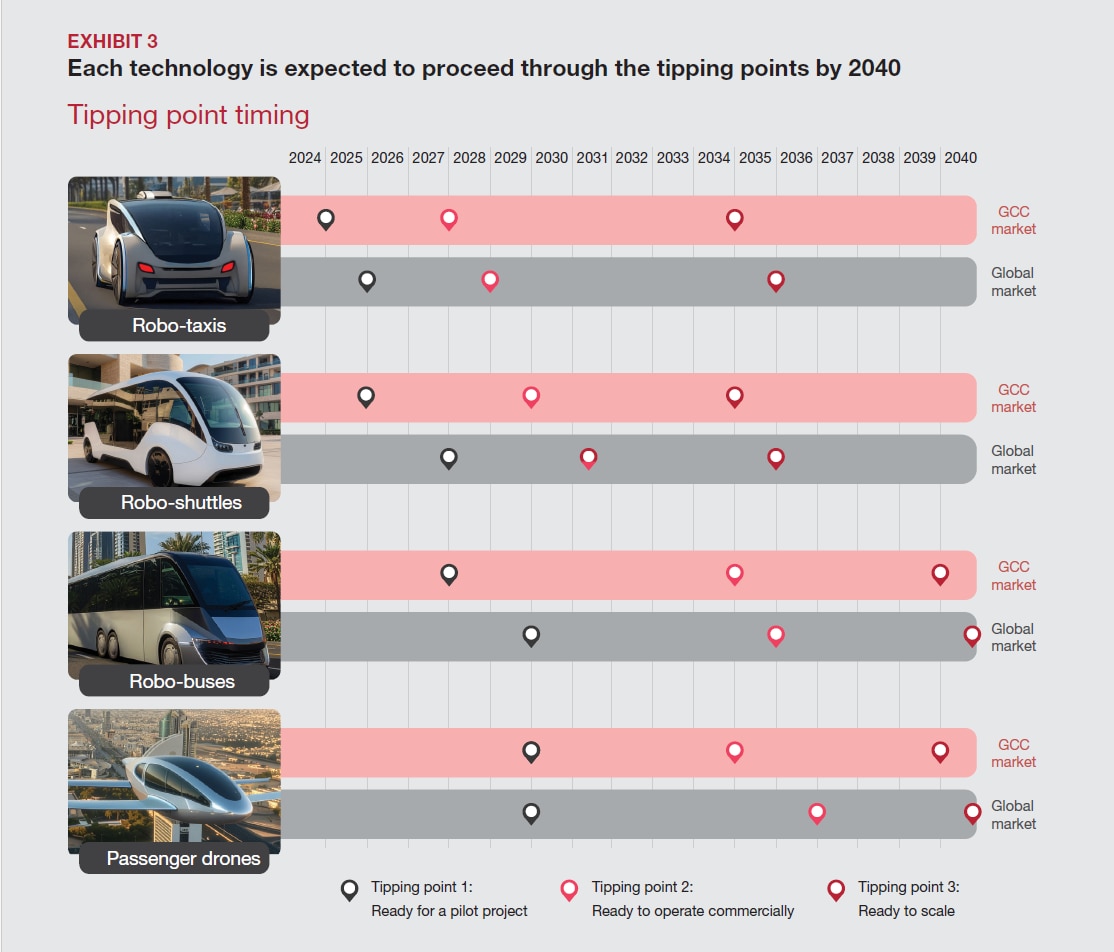Gulf Cooperation Council (GCC) countries are on the brink of a mobility and industrial revolution. Fully autonomous vehicles (FAVs) will redefine mobility in major cities. Across the region, robo-taxis, robo-shuttles, robo-buses,2 and passenger drones could make transport accessible to all within fully automated, integrated, and demand-responsive networks. We forecast that the global market for these technologies could be US$182 billion by 2035, including $18.7 billion in the GCC. The region could become a global FAV innovation leader, achieving the economic diversification and technology advances that are at the heart of national development plans.
Already, these countries have made significant investments and launched visionary pilot projects. However, there are challenges. The fragmented institutional ecosystem hampers coordination when companies introduce transformative technologies. Regulation can be inconsistent or undeveloped. In thinking about FAVs, the public worries about safety, reliability, ethical decision‑making in accidents, and data privacy. Infrastructure does not meet FAV needs. Roads are designed for human drivers, whereas FAVs use sensors and communication networks. Also, immediate infrastructure repairs can appear more important than readying cities for FAVs.
In response, GCC cities need a new mindset to push FAV technology to mass commercialization through three tipping points: ready for a pilot project, ready to operate commercially, and ready to scale. To get through these tipping points, GCC cities should:
-
Institute holistic program management
Institute holistic program management that allows FAV technologies to reach the scale needed for implementation. Coordinate among government entities, technology companies, and mobility providers.
-
Define and activate pilot projects
Define and activate the most relevant pilot projects for each technology.
-
Collaborate on legislation and regulation
Collaborate with national governments and regulators on legislation, regulations, and liability frameworks.
-
Invest in enabling infrastructure
Invest in infrastructure to enable FAV piloting and scaling.
-
Cultivate a supportive ecosystem
Cultivate an ecosystem of technology providers, operating companies, and startups. Regulators should supervise the ecosystem, using publicly funded incentives.
Each technology is expected to proceed through the tipping points by 2040

By thinking imaginatively and taking the correct actions, GCC cities can foster the development and growth of FAV technology. They can deploy it successfully. If they act now, GCC cities can take the pole position in the emerging FAV industry.
Contact us











Menu